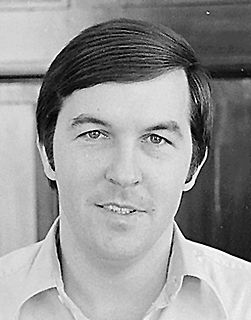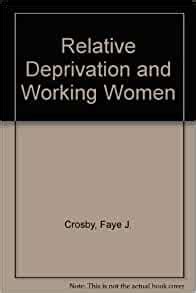A Quote by Sheena Iyengar
When people are given a moderate number of options (4 to 6) rather than a large number (20 to 30), they are more likely to make a choice, are more confident in their decisions, and are happier with what they choose.
Related Quotes
People were actually 6 times more likely to buy a jar of jam if they had encountered 6 than if they encountered 24, so what we learned from this study was that while people were more attracted to having more options, that's what sort of got them in the door or got them to think about jam, when it came to choosing time they were actually less likely to make a choice if they had more to choose from than if they had fewer to choose from.
People will make worse financial decisions for them if they're choosing from a lot of options than if they're choosing from a few options. If they have more options they're more likely to avoid stocks and put all their money in money market accounts, which doesn't even grow at the rate of inflation.
Some decisions are obviously much more inconsequential than others. For example, let's say you choose the blue shirt over the red one; not much is likely to change. Red meat over white meat once a week won't likely make a huge difference in your health. But if you believe that grilled chicken is healthier than a cheeseburger, your lunch choice might cause you to pause; especially if you know that the cheeseburger also comes with fries and a large chocolate shake.
I'm going to be working the next 25 or 30 years. People like me, if we want, number one, for no benefit reductions for our parents and our grandparents, number two, for the system to survive and exist for us, and, more importantly, number three, for the system to exist for us children, we are going to have to make reforms to that system.
It happens the world over - we love ourselves more than we do the one we say we love. We all want to be Number One, we've got to be Number One or nothing! We can't see that we could make ourselves loved and needed in the Number Two, or Three, or Four spot. No sir, we've got to be Number One, and if we can't make it, we'll rip and tear at the loved one till we've ruined every smidgin of love that was ever there.
When men and women across the country reported how happy they felt, researchers found that jugglers were happier than others. By and large, the more roles, the greater the happiness. Parents were happier than nonparents, and workers were happier than nonworkers. Married people were much happier than unmarried people. Married people were generally at the top of the emotional totem pole.
In terms of getting people to experiment more and take more risk, there are at least three things that immediately come to my mind. Number one, of course, is role-modeling it yourself. Number two is, when people take intelligent, smart risks and yet it doesn't work out, not shooting them. And number three, being honest with yourself.
They know your name, address, telephone number, credit card numbers, who ELSE is driving the car "for insurance", ... your driver's license number. In the state of Massachusetts, this is the same number as that used for Social Security, unless you object to such use. In THAT case, you are ASSIGNED a number and you reside forever more on the list of "weird people who don't give out their Social Security Number in Massachusetts."
































